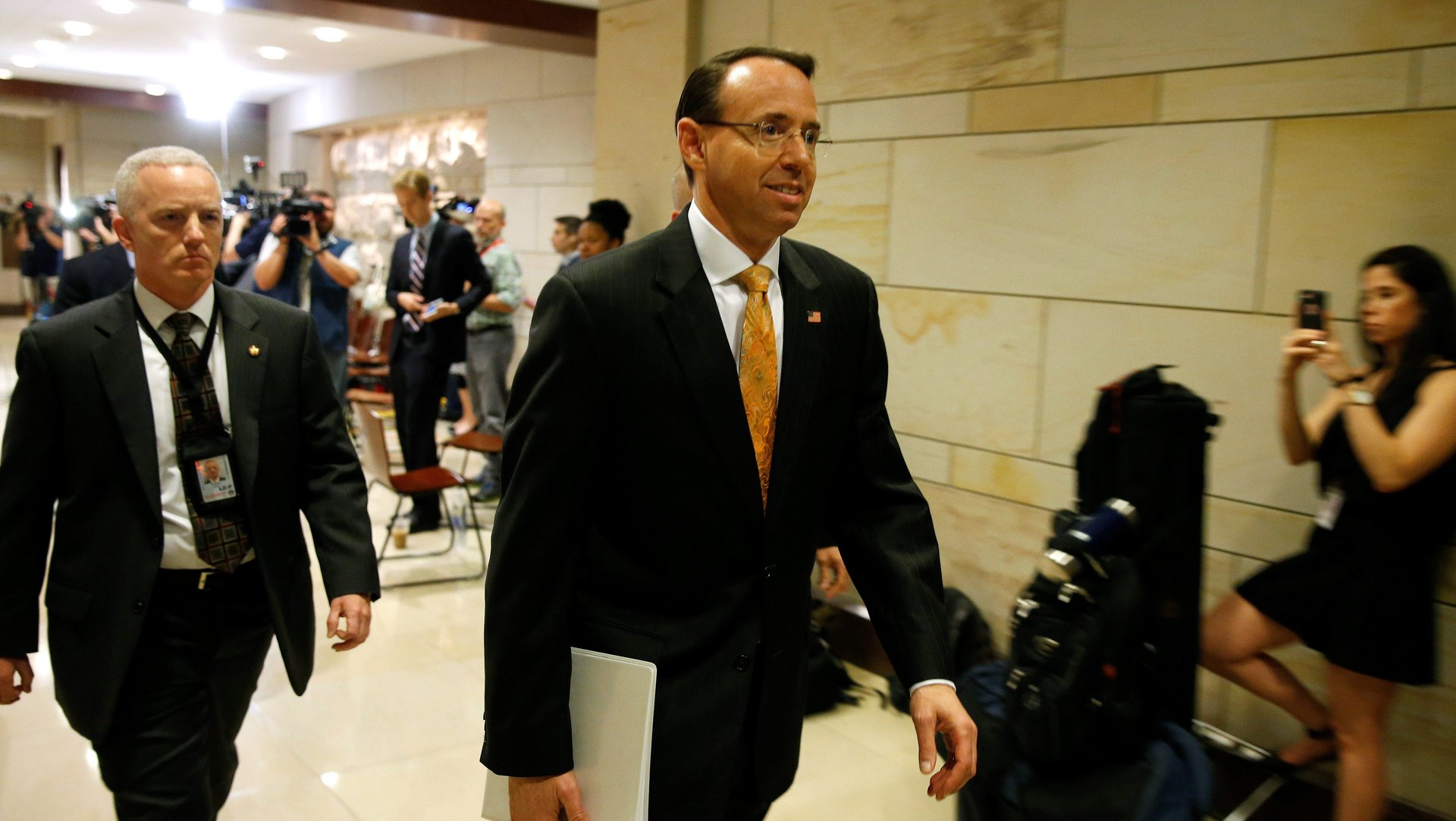Trump’s deputy attorney general says he is not to blame for James Comey’s firing
US deputy attorney general Rod Rosenstein explained his role in the firing of FBI director James Comey today (May 19). His testimony in front of the House of Representative may raise more questions than it answers, though, because it seems to contradict what the White House and attorney general Jeff Sessions have already said on the subject.


US deputy attorney general Rod Rosenstein explained his role in the firing of FBI director James Comey today (May 19). His testimony in front of the House of Representative may raise more questions than it answers, though, because it seems to contradict what the White House and attorney general Jeff Sessions have already said on the subject.
Days after he won the US presidential election last November, Donald Trump announced the nomination of Sessions as attorney general. Rosenstein said he had “discussed the need for new leadership at the FBI” with then-senator Sessions last winter. Rosenstein was picked by Trump to be deputy attorney general in mid-January.
In his Congressional testimony, Rosenstein said that he strongly disagreed with a number of Comey’s decisions regarding the investigation into former secretary of state Hillary Clinton’s private email server.
A July 5, 2016 press conference in which Comey sharply criticized Clinton’s behavior but exonerated her of any legal wrong-doing was “profoundly wrong and unfair,” Rosenstein told Congress, to both the Department of Justice, which Comey had not notified before holding the press conference, and to Clinton. Comey’s Oct. 28, 2016 letter to the FBI announcing he was reopening the investigation “flouted rules and deeply ingrained traditions,” and guaranteed some people would question the FBI’s role in the US presidential election, Rosenstein continued.
According to his testimony, Rosenstein said that he learned Trump “intended to remove director Comey and sought my advice and input” on May 8, a move he thought was “appropriate.” After learning about Trump’s decision to fire Comey, Rosenstein said he wrote a “brief memorandum to the Attorney General” outlining his “longstanding concerns” about Comey’s previous behavior.
This last part of the deputy attorney general’s account seems to contradict the White House’s explanation of how Trump decided to fire Comey. In a statement on May 9, the White House said: “President Trump acted based on the clear recommendations of both Deputy Attorney General Rod Rosenstein and Attorney General Jeff Sessions.”
At the time, the White House distributed the memo written by Rosenstein, which was dated May 9. It also distributed a letter from Sessions that said “Based on my evaluation, and for the reasons expressed by the Deputy Attorney General in the attached memorandum, I have concluded that a fresh start is needed at the leadership of the FBI.”
So while the White House claims Trump based his decision on the recommendations of Rosenstein and Sessions, Rosenstein says he only wrote his memo after learning—on May 8—that Comey was going to be fired.
This is not the first time Trump’s White House has offered an explanation for an event that was later directly contradicted. But given the level of scrutiny surrounding Comey’s firing, as well as the growing number of Congressmen calling for a separate investigation into his departure, this discrepancy may become more important in the weeks or months to come.